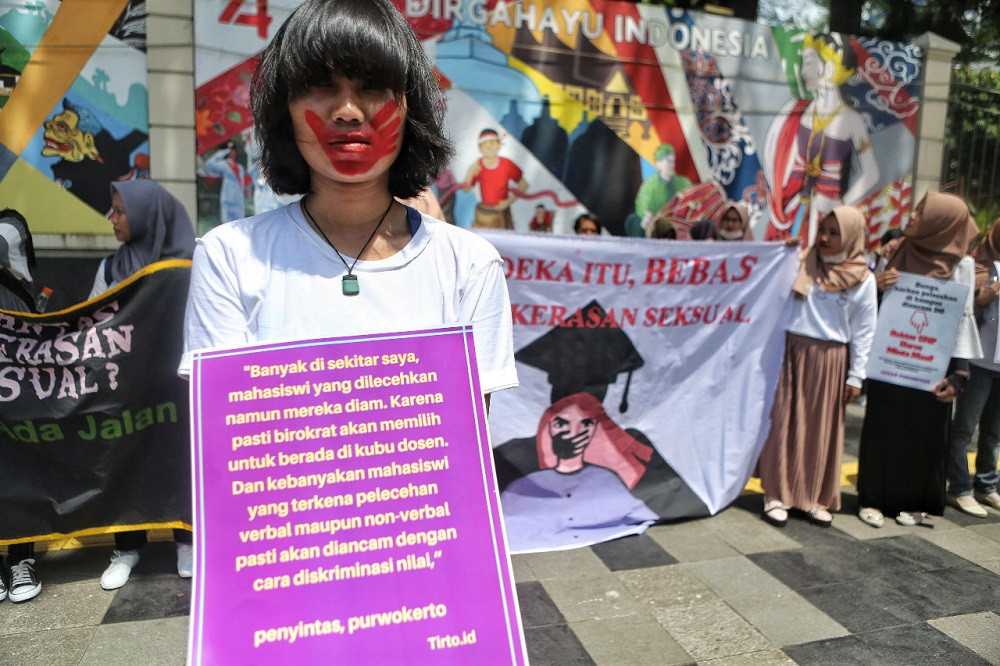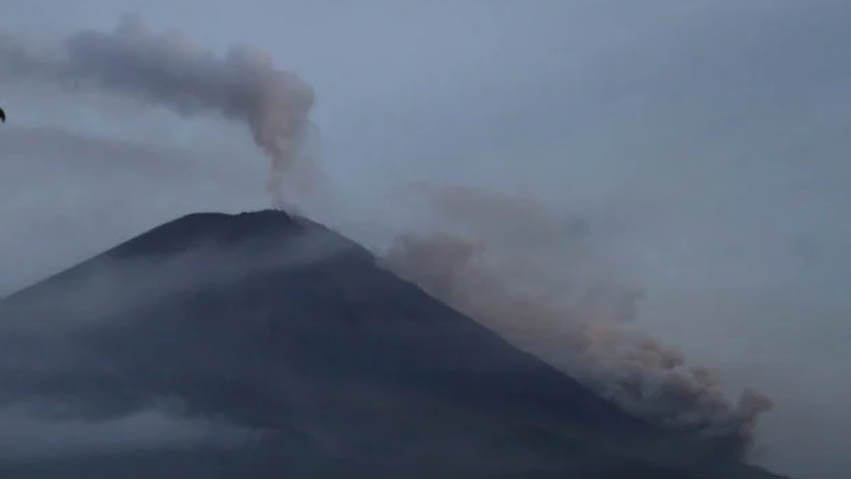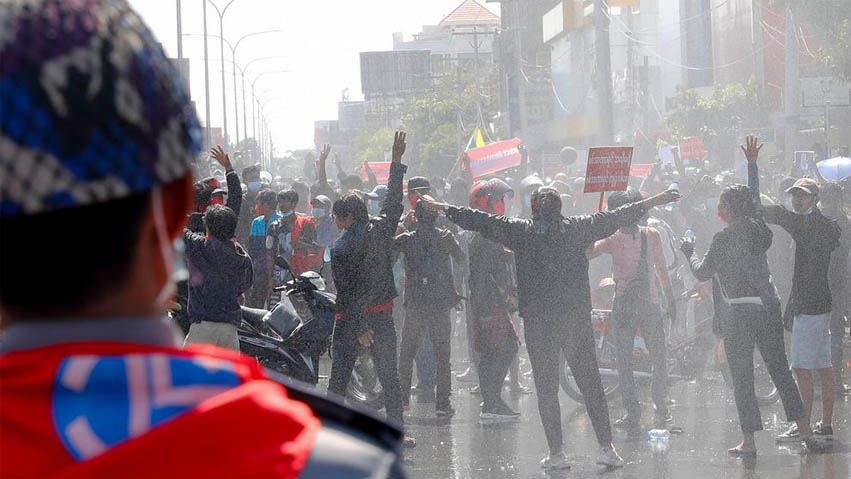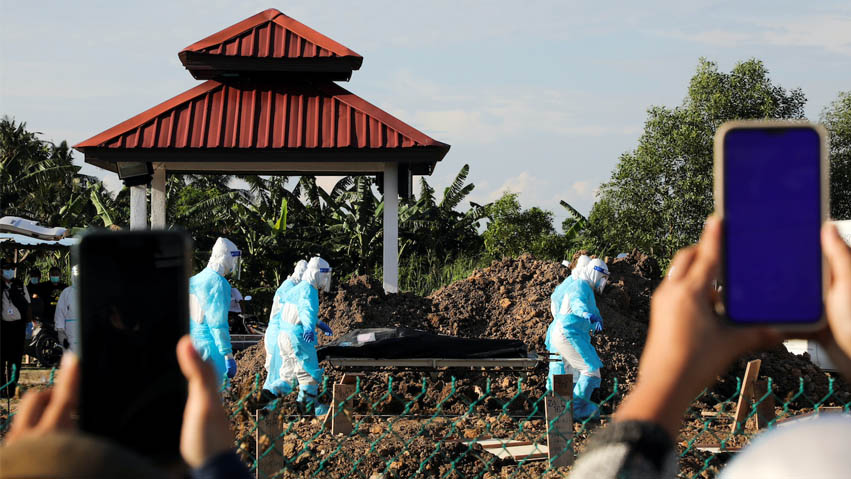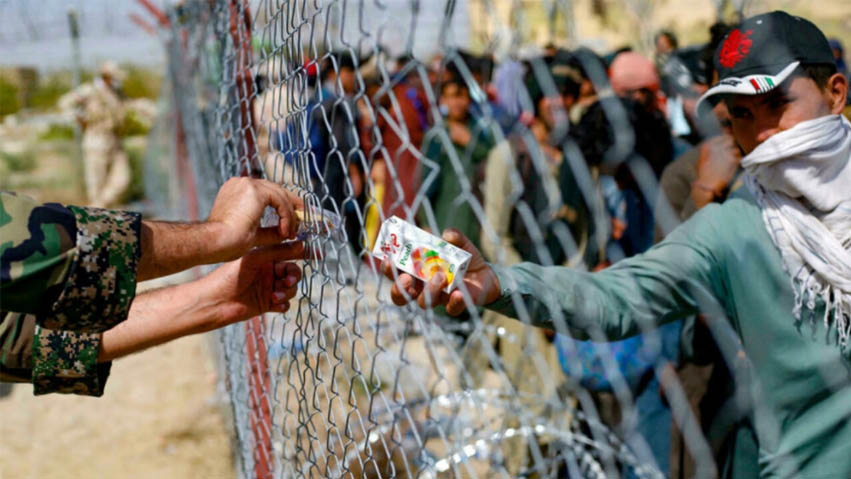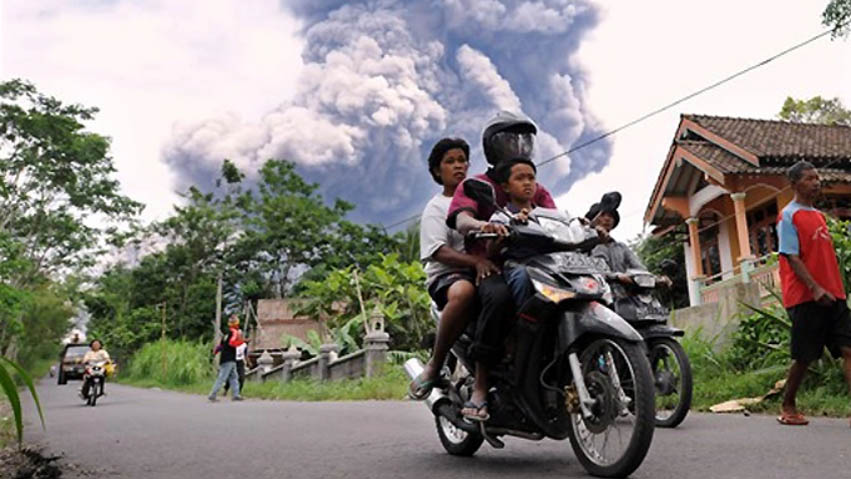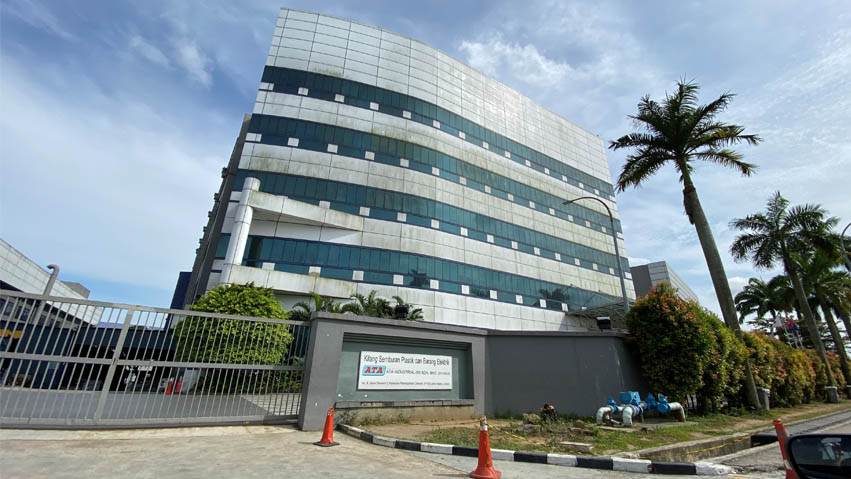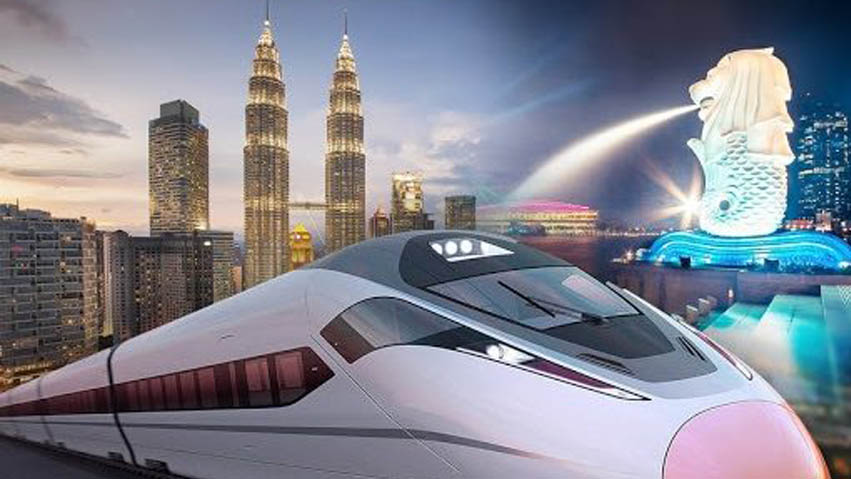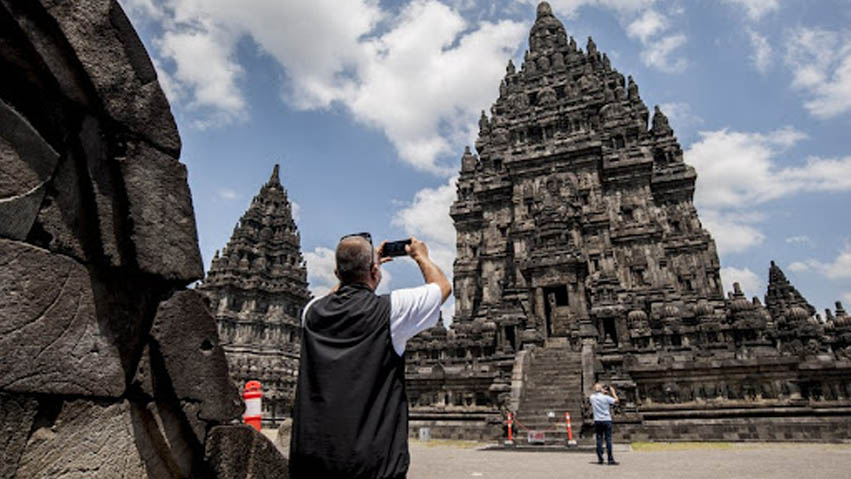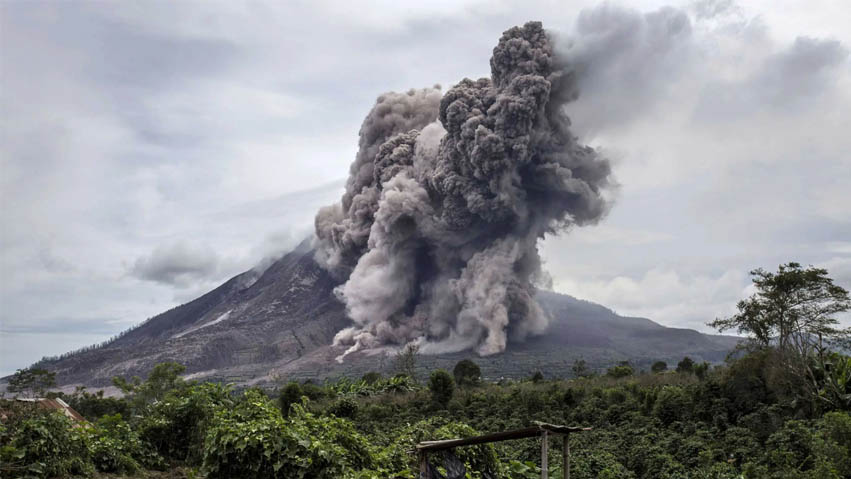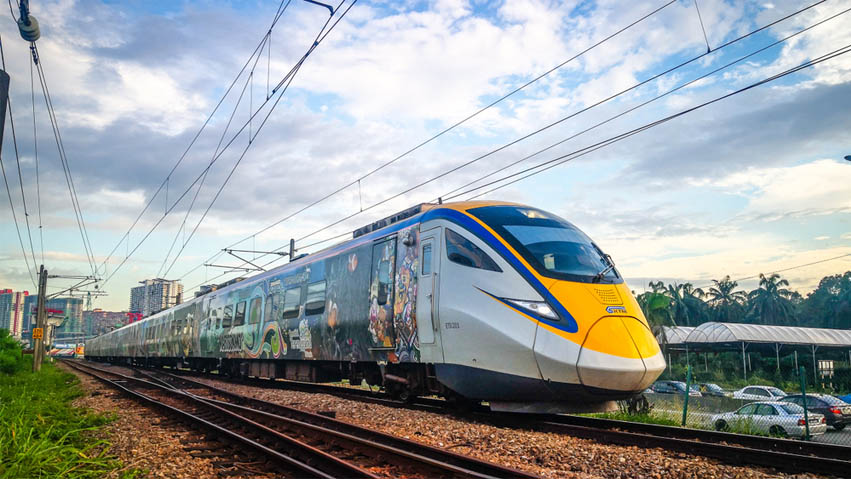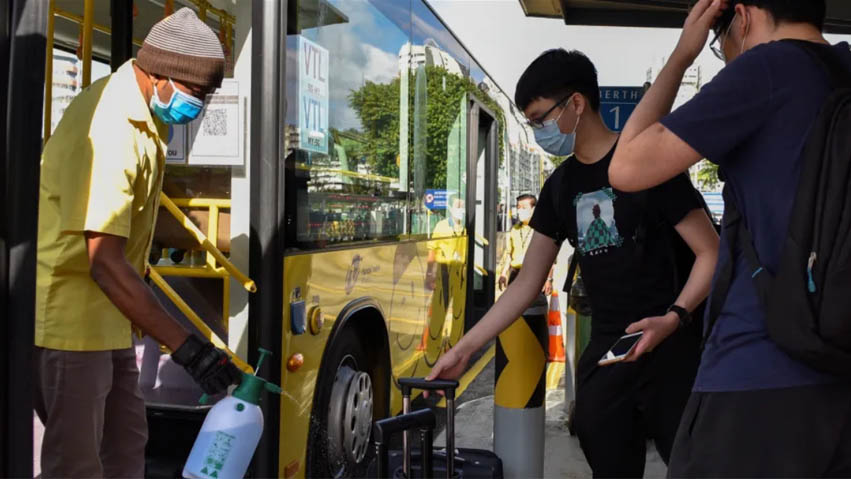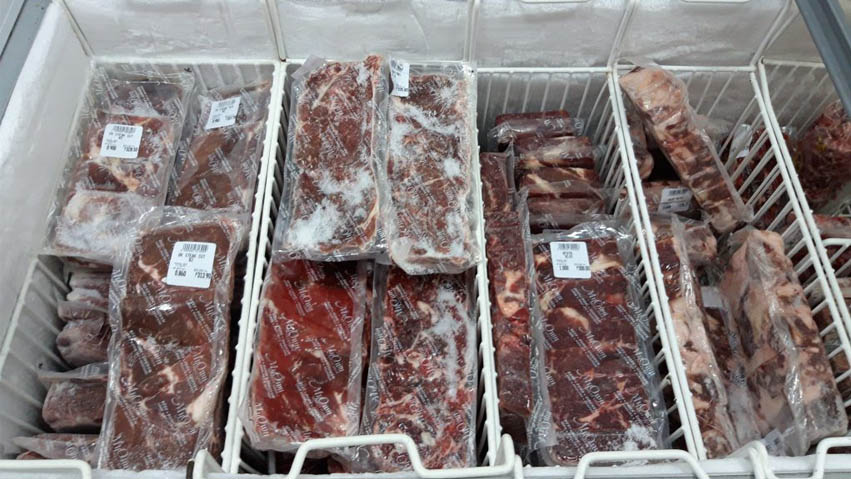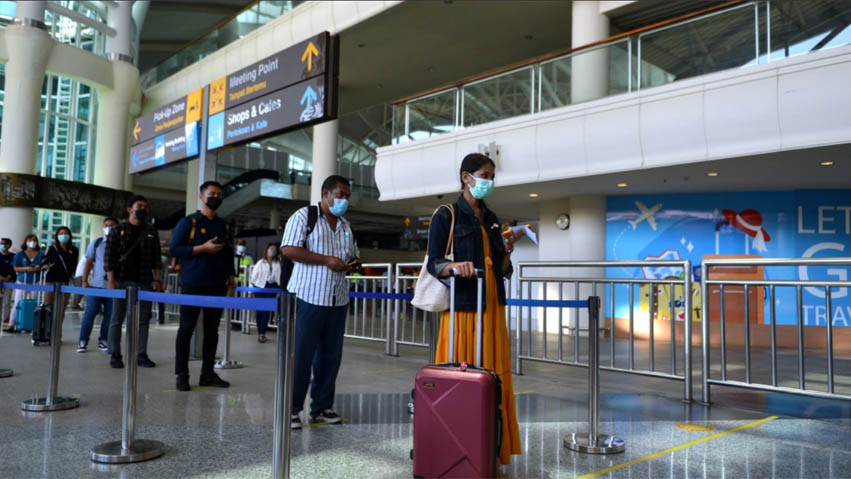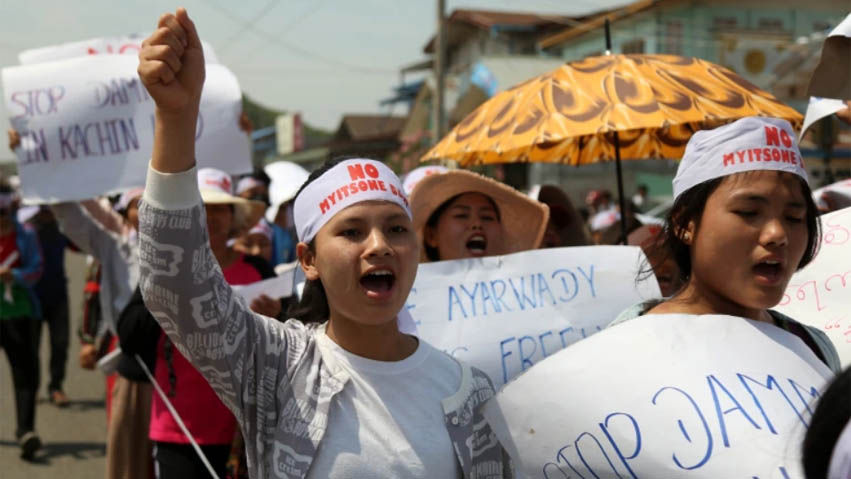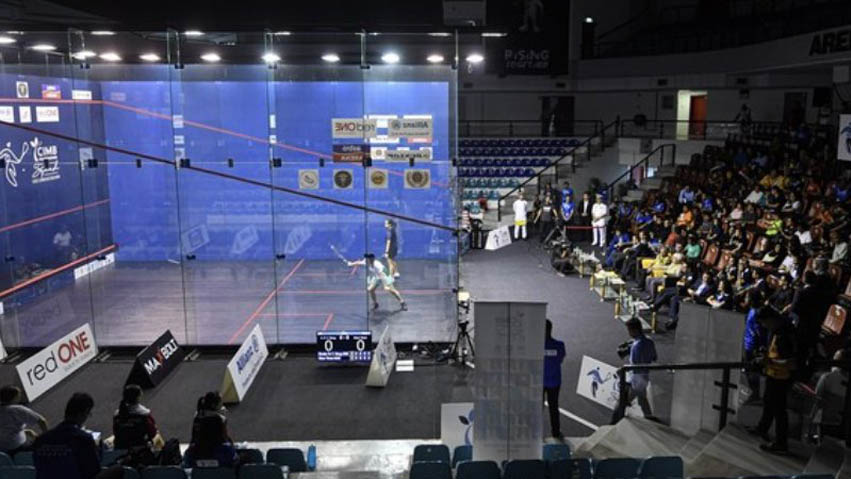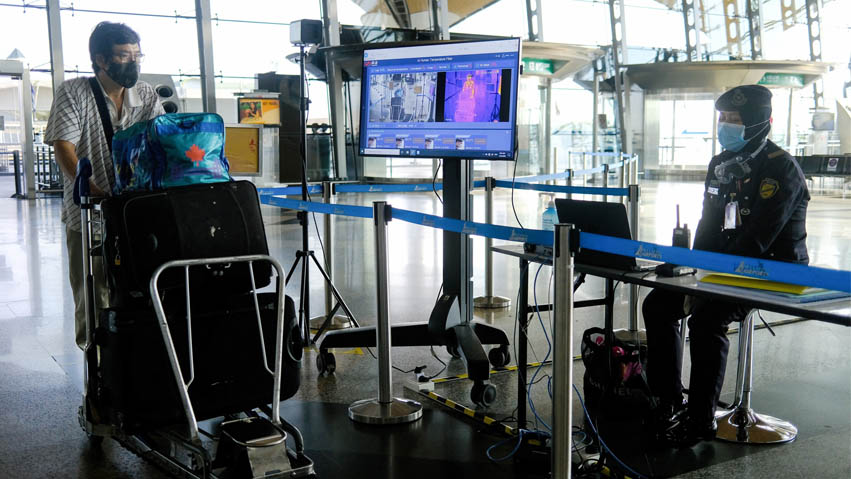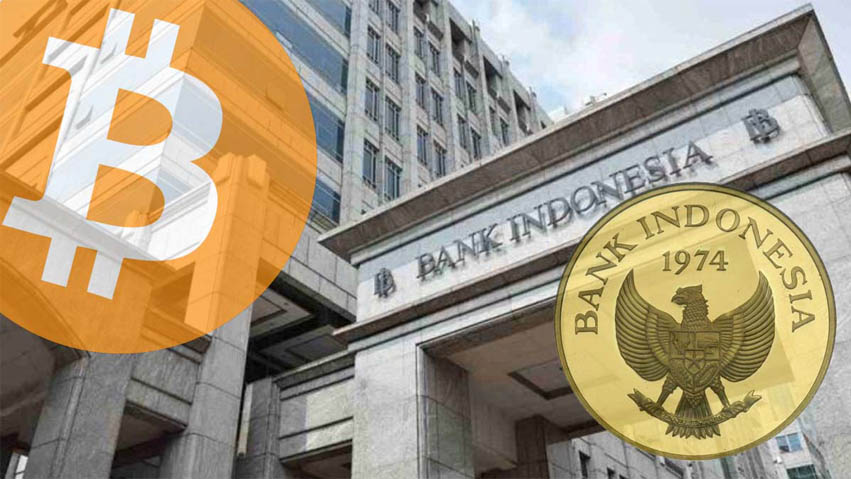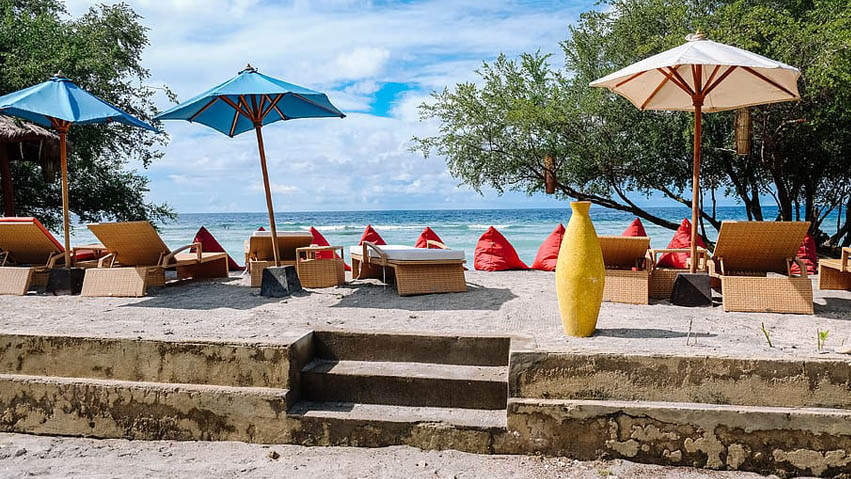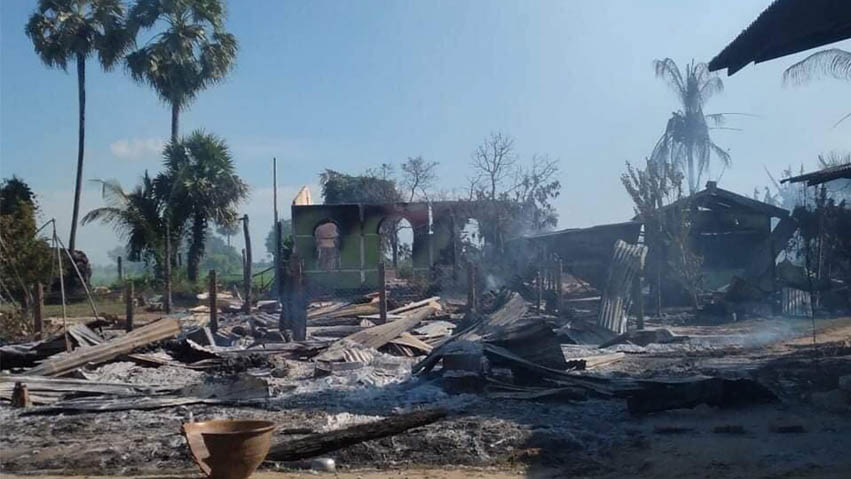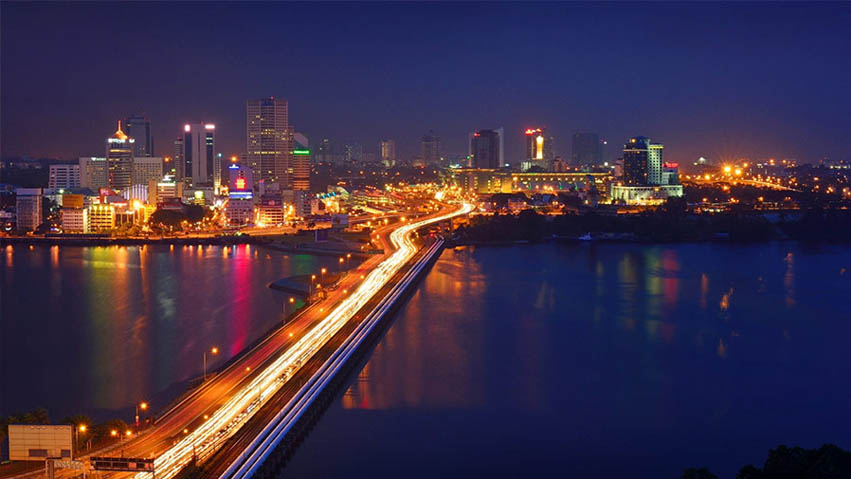-
Posts
4,692 -
Joined
-
Last visited
Content Type
Profiles
Forums
Downloads
Everything posted by ASEAN NOW Content Team
-
Indonesian religious and civic leaders have joined forces to launch a 16-day campaign against gender-based violence and to pressure lawmakers to approve an anti-sexual assault laws as soon as possible. The Act-Together Network to Stop Violence Against Women and Children started off the campaign on November 25, the International Day for the Elimination of Violence Against Women, with a virtual interfaith prayer session. It will include virtual chat shows and discussion programmes on violence against women and children, as well as events advocating for the passage of the sexual violence elimination bill, which has been stalled in parliament for some time. The campaign will end on December 10th, which is Human Rights Day. According to organisers, it is Indonesia's contribution to the Women's Global Leadership Institute's annual international campaign, which began in 1991 and has been reinforced by similar campaigns held in Indonesia in subsequent years. "We've met and assisted many mothers and children who have been victims of violence. That is why we launched the campaign, and through it, we hope to work hand in hand with society to assist them further and put an end to gender-based violence," said Sister Caecilia Supriyati, coordinator of the organisation from the Congregation of Our Lady of Charity of the Good Shepherd. According to the National Commission on Violence Against Women, there were 24,786 occurrences of sexual violence against women in Indonesia between 2016 and 2020. There were 7,344 rape cases out of that total, with less than 30% of those cases going to court. "We hope that more people will understand about what gender-based violence is really about and finally work together" "The first job is to work together to persuade politicians to enact the bill right away," the nun explained. Since 2012, the long-awaited bill to protect women and children from sexual predators has been on and off the legislative agenda. Sister Supriyati said, "We hope that more people will realise what gender-based violence is all about and that we can finally work together to eliminate violence against women and children." Gender-based violence "is a human rights concern and the fundamental foundation of other crimes against women, like as human trafficking," said Jesuit Father Ignatius Ismartono, an adviser to Sahabat Insan, a migrant group participating in the campaign, in an interview with UCA News.
-
Mount Semeru in Indonesia blasted more ash on Monday (Dec 6), complicating the search for survivors as the death toll from the volcano's horrific weekend eruption climbed to 22. Thousands of scared locals fled their houses when the island of Java's tallest mountain erupted, ejecting a mushroom of volcanic ash far into the sky and pouring boiling mud. Aerial photographs revealed entire neighbourhoods covered in grey volcanic ash and sludge, which had engulfed many residences and cars, including entire trucks. The death toll jumped to 22 on Monday night, according to Indonesia's national disaster agency, with 27 people still missing. "I'm still holding out hope that my son will be found... Every time I hear that a victim has been discovered, I pray that it is my son "When Semeru erupted, Maskur Suhri of Sumberwuluh village was collecting palm tree sap. "There's a slim possibility he'll make it... Maybe this is my son's fate, but I'm still hoping to find him, even if it's only his body." On Monday, new volcanic activity impeded search efforts, forcing rescuers to withdraw from some regions. "All evacuation teams have been temporarily pulled out... since there was a little fresh eruption that could harm the evacuation teams," rescue worker Rizal Purnama explained. Dangerous heavy clouds of smoke continued to billow from places shrouded in volcanic ash, as rescuers in hardhats dug through the muck in search of survivors - and bodies. The volcanic material had begun to solidify, making their task more difficult. "With simple tools, it's quite difficult," Rizal Purnama remarked. "It's extremely likely that unidentified bodies are buried beneath the scorching mudslide." Other rescues assisted desperate residents in reclaiming their possessions from destroyed homes. Some residents carried goats in their arms while others hoisted beds and furniture on their shoulders. A major bridge connecting two areas in the surrounding district of Lumajang with the city of Malang was damaged by lava flows. Strong winds halted rescue attempts in the Sumberwuluh area, where two lorries remained half-buried by volcanic ash, according to a Reuters witness. The search and rescue agency's Dewa Arya said Monday that his team was seeking to locate a family of five victims, but that their efforts had been hampered by inclement weather. People used Facebook to publish images of their missing relatives and public pleas for information regarding their locations. For more than 1,000 persons who have been displaced, public kitchens and health facilities have been established. CNN Indonesia stated that a trauma therapy team has been dispatched to help with children traumatised by the eruption, and that hundreds of humanitarian packages, including rice, blankets, clothing, and other basic supplies, have been given to the area.
-
According to local media, at least five individuals were killed in Myanmar this weekend when a vehicle slammed into anti-junta protesters. The attack occurred in a Yangon township, according to Myanmar Now, which cited protesters and eyewitnesses. According to a CNN correspondent who witnessed the incident, a military vehicle rammed demonstrators. According to a statement released by Myanmar's military, eleven demonstrators were arrested at the scene of the incident, including two men and one women who were hurt. The statement, however, made no mention of the reported deaths or the purported vehicle attack. The UN in Myanmar has issued a statement condemning the "reported attack on a number of unarmed civilians in Kyimyindaing Township, Yangon, in which a vehicle belonging to security forces rammed into protesters, who were then fired upon with live ammunition, resulting in numerous deaths and injuries." "We are shocked by reports that security personnel opened fire on, ran over, and murdered numerous peaceful demonstrators this morning in Yangon," the US Embassy said. "We support the people of Burma's right to peaceful protest," the embassy added. The event occurred while Myanmar awaits the outcome of deposed civilian leader Aung San Suu Kyi's trial, in which she faces almost a dozen counts, including incitement and violations of Covid-19 norms. She has categorically denied all charges. Until the military seized control in a February 1 coup, the 76-year-old Nobel winner served as Myanmar's state counsellor and de facto leader.
-
As of midnight, Malaysia's Covid-19 death toll had risen by 40, bringing the total number of deaths to 30,614 since the outbreak began. People who died before reaching hospitals accounted for ten of the most recent fatalities. With this, the total number of people who have been brought in dead in the country has reached 6,199. The state with the highest deaths was Johor, with eight, followed by Perak with six, and Kedah with five. Four people died in each of the states of Selangor, Sabah, and Terengganu. Three people died in Sarawak, where a state election is taking place. Two people died in Pahang, while one person died in each of Penang, Melaka, and Negri Sembilan. Those who were fully vaccinated accounted for 60.5 percent of deaths over the last two weeks, 3.2 percent for those who were partially vaccinated, and 36.3 percent for those who were unvaccinated. Yesterday, Malaysia reported 4,298 new Covid-19 cases, bringing the total number of infections detected to 2,654,474 since last year. However, the number of people who have recovered from the sickness has been positive, with 2,566,159 people having done so thus far. Selangor has the most cases of the Covid-19 cases reported yesterday, with 1,160 cases. There were 434 cases in Kelantan, 364 in Johor, 324 in Kedah, 294 in Sabah, 278 in Pahang, 261 in Penang, 259 in Perak, 254 in Terengganu, 228 in Kuala Lumpur, and 221 in Negri Sembilan (107). Sarawak, Putrajaya, Perlis, and Labuan, respectively, had 71, 33, 17, and 11 cases. Discover Cigna’s range of health insurance solutions created for expats and local nationals living in Thailand - click to view
-
Following a three-day weekend, Bursa Malaysia experienced ongoing selling pressure as investors looked for good leads in the midst of increased uncertainty and volatility. At 9.10 a.m., the FBM KLCI was down 3.39 points to 1,498.35, unable to break through the psychological barrier of 1,500. Investors hurried to the sidelines over fears of the Omicron form of the Covid-19 virus, and US markets finished last Friday on a sour note following a rocky week of trading. Meanwhile, market mood was pulled down by poor US jobs statistics, raising concerns about a weakening recovery. According to Kenanga Research's weekly analysis, following a flurry of corporate announcements near the close of the quarterly earnings reporting season, there may be a slowdown in news flow in the coming week. "The development of the new Omicron variant is of higher interest," it stated, adding that "investors will be inclined to react to any news relevant to the transmissibility and severity of the illnesses moving forward." Meanwhile, the research firm's technical reading remained negative as the stock market extended its seven-week losing skid. Genetec was down 90 sen to RM36.70 on Bursa Malaysia, Sam Engineering was down four sen to RM20, and MPI was down 30 sen to RM49.70. QL Resources gained 10 sen to RM4.85 per share, while Sptrizer gained nine sen to RM2.04 per share and TAFI Industries gained eight sen to RM2.37 per share. Impiana Hotels rose one sen to 9.5 sen, EA Holdings remained constant at two sen, and VS Industry increased six sen to RM1.21.
-
After years of living in limbo, tens of thousands of Afghans, predominantly Hazara, are losing hope of being resettled. When his buddy and fellow refugee, Ahmad Shah, began acting abnormally in front of the Indonesian Organization for Migration (IOM) building in the Indonesian city of Medan, Afghan refugee Ezat Najafi suspected something was amiss. For the past month, a group of Afghan refugees, some of whom have been stuck in Indonesia for almost a decade, have been conducting a 24-hour protest in front of the IOM headquarters, sleeping in tents set up in the forecourt. The IOM is in charge of caring for refugees in Indonesia while they wait to be resettled in a third country. Najafi, 30, told Al Jazeera, "I attempted to save him and talk to him." In 2015, he arrived in Indonesia. "'Please don't do this,' I said. He poured gasoline on his clothes and took out two lighters, one in each hand, all of a sudden. I tried to reason with him and advised him to be patient, but he refused." Shah, 22, probably thought he had waited long enough. Shah, who arrived in Indonesia as a teenager in 2016, has been waiting for five years to be permanently resettled, and his friends told Al Jazeera that the uncertainty, along with a long-term health issue, has caused him to become depressed. Najafi didn't notice anything was wrong until he saw his friend, plainly agitated, pacing in front of the building and shouting incoherently. What happened next is captured in an amateur video recorded on the scene and extensively distributed on Indonesian social media: As he switched the lighters in his hands and ignited his petrol-soaked garments, Najafi and several other immigrants sought to reason with Shah. As Najafi surged forward Shah in a desperate attempt to save him, flames enveloped his upper body, and he was beaten back by the heat. Finally, with a fire extinguisher in hand, a security guard rushed to Shah and extinguished the flames. Another immigrant, 25-year-old Mohammad Reza, told Al Jazeera, "He was on fire for maybe 20 seconds." Shah's arms and face were seriously scorched when the flames died down. According to his companions, he was transferred across the street to a private hospital, but the IOM shifted him to one of Medan's public hospitals the same day since the organisation did not want to pay for his medical care. Raising their voice At least 13 Afghan refugees have committed suicide in Indonesia since 2016. They had been waiting for between six and eleven years to be resettled. The IOM declined to answer specific questions when contacted by Al Jazeera for comment, but stated in a statement that it was "very worried" about the situation in Medan. It went on to say that it was working with the hospital and other parties to provide care for the injured. "IOM will continue to deliver health, psychological, and protection programmes to all refugees in Medan and throughout the nation," according to the statement. The IOM, on the other hand, did not come to speak with the refugees after the incident, and has not provided appropriate support in previous years, according to the refugees. "That's why we abandoned our customary IOM lodging in favour of this camp." Reza told Al Jazeera, "We want to raise our voices." "It's been years since we've been here, and nothing has happened." At this precarious time, we are stranded in the midst of nowhere. We're all dealing with psychological issues." One of the main obstacles for refugees in Indonesia, according to Rima Shah Putra, the director of the Geutanyoe Foundation, an NGO that provides education and psychosocial support to refugees in Indonesia and Malaysia, is a lack of definitive answers about when they will be resettled in a third country. "There aren't many things they can do while they're still in transit in Indonesia," he said. “This can cause great stress for refugees and asylum seekers.” Indonesia, like many other Southeast Asian countries, has not signed the 1951 Refugee Convention or the 1967 Refugee Protocol, which permits for permanent resettlement in a host country. This means that refugees are only allowed to stay for a limited time while they await resettlement in another country, usually the United States or Canada. And they are subject to harsh rules in Indonesia while they wait. Working, possessing a car or motorcycle, travelling outside of the municipal borders, and attending university are all illegal. The IOM provides lodging, which is mainly in dilapidated hotels, as well as a stipend for food and other necessities. Each adult refugee receives 1,250,000 Indonesian rupiah ($86) per month, while children receive 500,000 Indonesian rupiah ($34) each month.
-
After Mount Semeru erupted on Saturday, at least 14 people were killed, scores were injured, and hundreds of families were displaced. Residents living in the shadow of Indonesia's Mount Semeru sifted among wrecked things after their homes were blanketed by the volcanic explosion on Saturday, surrounded by an apocalyptic scene of molten ash and mud. Fathers hugged distraught daughters, old villagers carried mattresses on their backs, and farmers brought goats that had survived, all in the hopes of salvaging all they could from the ruins of their hamlet. "We had no idea it was hot mud," said Bunadi, a Kampung Renteng village resident. "All of a sudden, the sky darkened as showers and thick smoke poured down." According to a disaster mitigation agency official, the eruption has killed 14 people and injured 56 others. The number of injuries was lower than the previous tally of 98, with 35 of them being severe. A total of 1,300 individuals have been evacuated, according to the official. It also resulted in the eviction of many people and the placement of hundreds of others in shelters. Mothers sat on the floor next to their sleeping children at a nearby mosque, grateful to have survived the ash deluge that engulfed entire towns and left hundreds with severe burns. ‘Almost saved’ Despite the dangers of breathing the unclean air, some people returned to their ghost towns after the eruption, trying to pick up the pieces from the bitter sea of mud. Plates, pots, and bowls stood on a table in one residence in East Java's Lumajang area as if dinner was being served, but the food had been substituted with portions of volcanic ash. Some people looked for missing friends and family with great zeal. "The mudslide dragged away ten individuals," Salim, another Kampung Renteng resident, claimed. "One of them was on the verge of being saved. He was urged to flee, but he refused, saying, "I can't; who will feed my cows?" House roofs at Sumber Wuluh stuck out from deep mud layers, highlighting the massive amount of water that had dropped on the area. Cows were either dead or clinging to life as their flesh was torn away by the scorching heat. While rescuers in orange uniforms laboured against a terrible dark-grey backdrop, one evacuee's cigarette hung from his mouth as he was dragged to safety. As smoke continued to billow, a group of Sumber Wuluh locals stood together amid the ash, facing towards Semeru's crater.
-
Myanmar security officers in a car crashed into an anti-coup protest in Yangon on Sunday morning (Dec 5) killing five people and arresting at least 15, according to local news source Myanmar Now. Reuters reported that dozens of people were hurt on the spot. On social media, photos and videos show a vehicle crashing into demonstrators and victims laying on the road. Despite the morning violence, another demonstration was held in Yangon in the afternoon. Despite the deaths of over 1,300 people since the February 1 coup, anti-military rallies have continued. Small groups protesting against the toppling of an elected government led by Nobel Laureate Aung San Suu Kyi and the return of military rule are common. The shadow government of the opposition said it was heartbroken to see nonviolent protestors attacked and killed. "We will retaliate vehemently against the terrorist military that ruthlessly and inhumanely massacred unarmed innocent demonstrators," the National Unity Government's defence ministry stated on social media after the attack on Sunday. A "flash mob" protest in Yangon, Myanmar's largest city, was slammed minutes after it began in the incident. "I was struck and fell in front of a truck. I was beaten with a gun by a soldier, but I defended myself and pushed him back. Then he opened fire on me as I dashed away in a zig-zag style. Fortunately, I was able to flee "Reuters spoke with a demonstrator who wanted not to be recognised for security concerns. According to two witnesses, a car staffed by troops slammed into the gathering from behind, then chased the scattering demonstrators, arresting and beating them. According to witnesses, some were critically injured with head wounds and were unconscious. On Sunday, a spokesman for the ruling junta did not return calls requesting comment. The military claims that the violence was started by demonstrators who were murdered. It claims the coup was organised because the election won by Aung San Suu Kyi's party in November was rigged. The claim was refuted by the election commission. According to UN estimates, wars with ethnic minority insurgents in isolated frontier regions in the north and east have intensified dramatically since the coup, displacing tens of thousands of residents.
-
The boomtown established around Dyson's business is just a short drive across the border from its new headquarters in Singapore: A Malaysian industrial sector dominated by ATA IMS, the country's largest provider. ATA, one of Malaysia's leading electronics manufacturing services suppliers, benefited from Dyson's high-end vacuum cleaner and air purifier success, supplying parts for a firm that accounted for 80% of its sales. Ten current and former employees, as well as a former ATA executive, claim that the company's expansion came at a cost: Its primarily migrant staff was trained to hide genuine working and living circumstances from labour inspectors and Dyson by working up to 15 hours a day, skipping rest days to keep up with demand, and working up to 15 hours a day. Employees indicated in interviews during the previous two months that ATA, Dyson's largest global contract manufacturer, hired thousands of foreigners without work licences, according to experts. Following questioning from Reuters on November 18, Dyson announced last month that it would withdraw its business from ATA in six months, citing a recent independent audit on labour conditions and allegations by an unnamed whistleblower. The Responsible Business Alliance (RBA), an organisation often used by electronics companies to undertake factory audits, audited ATA, according to a statement. The inspections are carried out by third-party auditors hired by the RBA. It remained silent on the subject. On November 29, ATA announced that it had seen a summary of Dyson's audit, which revealed inadequate living circumstances, retribution fears, and underpaid allowances, among other things. The findings were labelled as "inconclusive" and the company said it was reviewing them. The audit has not been seen by Reuters. ATA declined to comment, instead directing Reuters to its most recent public pronouncements. Dyson declined to comment on Tuesday because the allegations were connected to ATA. Malaysia announced on Wednesday that it would charge ATA in connection with complaints received through the labour department. It did not specify the nature of the charges or complaints, or if they were related to the workers' allegations regarding its Dyson plants. M Saravanan, Malaysia's human resources minister, claimed that claims of forced labour at Malaysian enterprises were damaging foreign investors' faith in the country's products. He has previously stated that the government was looking into Dyson's choice to leave ATA. ATA's stock plunged 60% after Dyson's announcement. Some analysts have questioned ATA's ability to recruit new customers, and the company's announcement on Nov 29 predicted revenue decreases and expense reductions. Six workers and retailers interviewed in the Johor Bahru industrial region expressed concern about losing their jobs as a result of Dyson's leaving. On a recent Sunday, one off-duty ATA worker, dressed in his royal-blue factory work shirt, said, "There is no assurance of a job here anymore." He, like others, wished to remain anonymous for fear of retaliation. Although four ATA employees and a former CEO estimate that the company's workforce was as high as 17,000 until recently, including those without permits, ATA officially employs roughly 8,000 people. According to the workers and executive, the most of the 17,000 were from Bangladesh and Nepal.
-
After meeting with his Malaysian counterpart Ismail Sabri Yaakob on Monday (Nov 29), Singapore Prime Minister Lee Hsien Loong urged reviving discussions on the stalled Kuala Lumpur-Singapore High-Speed Rail (HSR) project. Mr. Ismail Sabri is on his first official visit to Singapore, which coincides with the opening of the new transit lanes between the two nations. Malaysian Prime Minister Najib Razak met Mr Lee in the Istana and was treated to an official lunch. "The prime minister and I also talked about the Singapore-Kuala Lumpur High-Speed Rail, and the prime minister advised resuming those conversations," Mr Lee added. "I informed the Prime Minister that Singapore and Malaysia had earlier agreed to terminate the HSR projects, and that the matter had been resolved amicably. Singapore, on the other hand, is open to new proposals from Malaysia for the HSR project." After the agreement expires on December 31, 2020, the HSR project, which promised to reduce travel time between Singapore and Kuala Lumpur to around 90 minutes, was cancelled. After then-Malaysia Prime Minister Mahathir Mohamad told reporters in September 2018 that he had reviewed Malaysia's financial position and how the project would not help the country, the two sides agreed to postpone construction of the HSR until end-May 2020. Malaysia later requested a seven-month delay to allow both parties to debate and evaluate Malaysia's proposed project adjustments. The deal dissolved as both parties were unable to agree on new terms, notably Malaysia's proposal to remove an assets business that would run the railway. For the cancelled project, Malaysia paid Singapore more than S$102 million in compensation. Mr Lee said on Monday that both countries' transportation ministries will meet to address the issue, and that Singapore is looking forward to receiving additional data from Malaysia "so that we can review them and consider the situation again, beginning from a clean slate." Mr Lee stated that he discussed additional areas of cooperation with Malaysia, including as the Johor Bahru-Singapore Rapid Transit System (RTS) Link, which is planned to begin passenger service by the end of 2026. The conclusion of the RTS Link Grantor Agreement last week, the transport ministries of both nations stated in a joint statement, was another "important step" in the project's progress. "This agreement builds on the Concession Agreement that was signed on July 30, 2020, when the RTS Link project was successfully restarted, and specifies the responsibilities of the two Grantors in carrying out their tasks and obligations under the Concession Agreement," the ministries said. Mr Lee also stated that Singapore will continue to support the development of Iskandar Malaysia. "Next month, the 14th Joint Committee for Iskandar Malaysia will meet, and I'm hoping they'll be able to give the project a boost." The Joint Ministerial Committee for Iskandar Malaysia's 14th meeting, set for January 2019, has been postponed due to a maritime border dispute between the two countries. The committee, which last met in 2017, was established in 2007 to look into how the two countries may collaborate in the Iskandar economic zone in south Johor. The committee aims to promote both countries' tourist, transportation, and industrial relations.
-
As the Omicron variety continues to spread around the globe, Indonesia has doubled the necessary quarantine time for all overseas visitors from seven to ten days, effective Friday (Dec 3). Foreigners who visited South Africa, Botswana, Namibia, Zimbabwe, Lesotho, Mozambique, Eswatini, Malawi, Angola, Zambia, or Hong Kong over the previous two weeks were barred from entering Indonesia, according to the authorities. Indonesians returning from these countries are exempt, however they are subject to a 14-day quarantine. President Joko Widodo authorised the longer quarantine period, according to Coordinating Maritime Affairs and Investment Minister Luhut Binsar Pandjaitan, who is overseeing the government's Covid-19 response in Java and Bali. Mr Luhut said on Wednesday that "this policy will be revisited every now and then as we learn and continue to find out more information about this new version." "We also advise the population not to travel abroad at this time to help control the country's pandemic situation." Government officials will also be barred from travelling abroad unless they are assigned to key diplomatic missions. At the time, little is known about the Omicron variation. Preliminary evidence suggests it may be more contagious than Delta, the most infectious Covid-19 variation to date. According to Health Minister Budi Gunadi Sadikin, despite its worrying transmissibility, preliminary data suggest that Omicron symptoms may be less severe than Delta's. At least 24 nations have so far discovered the new version, including Australia, the United Kingdom, Germany, Israel, Italy, the United States, Belgium, and Saudi Arabia. So yet, no deaths have been documented as a result of this variation. Although no instances of the Omicron form have been discovered in Indonesia, the government has been stepping up preparations to mitigate the potential damage should it arrive. Discover Cigna’s range of health insurance solutions created for expats and local nationals living in Thailand - click to view
-
According to officials, at least 13 people have died and 98 have been injured as a result of Mount Semeru's abrupt eruption. The death toll from Indonesia's Semeru volcano eruption has increased to 13, officials said, as rescuers looked for survivors in towns coated in molten ash. Two of the 13 persons killed by the eruption have been identified, according to a representative for Indonesia's disaster mitigation agency (BNPB). At least 98 people have been hurt, including two pregnant women, according to the spokesman, Abdul Muhari, and 902 people have been evacuated from the villages surrounding Semeru in East Java Province. According to officials, up to ten trapped persons were rescued from villages in East Java's Lumajang area, with broadcaster Kompas stating that those rescued were sand mining workers. The volcano, which is located on Indonesia's most densely populated island of Java, erupted on Saturday, shooting ash columns more than 12 kilometres (7.5 miles) into the sky and lava running down its slopes. The ash buried several communities in Lumajang. Houses and automobiles were flooded, and livestock were suffocated. According to Eko Budi Lelono, the geological survey centre's director, the unexpected eruption was triggered by a thunderstorm and days of heavy rains. Rains corroded and eventually toppled the lava dome atop the 3,676-meter (12,060-foot) Semeru, according to him. On Saturday, he added, lava and smouldering gas flowed up to 800 metres (2,624 feet) to a nearby river at least twice. People should stay 5 kilometres (3.1 miles) away from the crater's mouth, according to the BNPB. "Thick columns of ash have plunged several villages into darkness," said Thoriqul Haq, a Lumajang district official, adding that a power outage in the area was delaying evacuation operations. According to Haq, debris and lava coupled with rain created thick mud, which collapsed the main bridge between Lumajang and Malang's neighbouring district, as well as a smaller bridge.
-
After air raids on more than a dozen villages in Depayin, Sagaing region, local media reports that inhabitants were compelled to seek refuge in the forest and other locations. According to local media, attacks by helicopter gunships in Myanmar's Sagaing area, a hotbed of resistance to the country's military administration, have forced thousands of civilians to flee their homes. The claimed attacks over the weekend targeted 15 villages in Depayin township, the same location where a military-backed gang massacred nearly 70 supporters of Aung San Suu Kyi's National League for Democracy (NLD) party in 2003 during a visit by the Nobel Peace laureate. After years of house detention, Aung San Suu Kyi led the National League for Democracy to a landslide electoral victory in 2015, and she went on to win re-election in 2020 by an even bigger majority. However, the military refused to accept the results of the most recent referendum, precipitating a coup on February 1 that has thrown the country into upheaval for the past ten months. Mass protests have been met with severe repression, with the military allegedly killing over 1,000 civilians, leading to armed revolt. Sagaing has seen numerous skirmishes, military-led massacres, and assassinations of military-appointed local officials. It was one of the first regions to take up arms against the military rule. According to Myanmar Now, which quoted three local sources, at least seven civilians were killed in the most recent air raids on Saturday, and "thousands" have been displaced. People's Defence Forces (PDF) armed opposition organisations have continued to fight back. On Sunday, the Depayin PDF claimed to have struck a military convoy, killing 20 troops. As many as 20 civilians may have been murdered in the air raids, according to Myanmar's alternative National Unity Government, which was created by legislators elected in the 2020 elections. However, search and identification attempts have been impeded by ongoing attacks. "Human rights and international law are completely disregarded," the NUG's Ministry of Humanitarian Affairs stated in a statement, adding that the military is determined to "demolish everything on the route to a throne." Depayin villagers who have been displaced have reportedly sought refuge in the forests and nearby communities. According to a report by the local Irrawaddy news agency, "resistance organisations" claim that up to 30,000 people have been forced to evacuate their homes. The figures could not be independently verified. "The junta's strikes in Depayin might be considered a war crime, and they're consistent with attacks on civilian populations that we're seeing around the country," said Patrick Phongsathorn, a human rights advocate with Fortify Rights, who called for an international arms embargo.
-
Selangor, which is run by the opposition, has agreed to a northern route for the East Coast Rail Project, which it had previously vetoed. The chief minister of a Malaysian state held by the opposition has allowed a multibillion-dollar Chinese-backed train project — the country's largest – which has been blocked since 2016. The People's Justice Party (PKR), which governs Selangor and is home to Malaysia's busiest port, has authorised the East Coast Rail Link (ECRL) project with the same specifications that the party had previously opposed. The rail route, which is part of China's global infrastructure-building initiative, the Belt and Road Initiative (BRI), will run through northern Selangor rather than the southern section of the state, as PKR had hoped. It will also cost $12 billion in the United States, rather than the $10.4 billion the party had negotiated for in 2019. Selangor's chief minister, Amiruddin Shari, said, "I officially announce that the Selangor Government no longer objects to the implementation of the ECRL alignment that spans the northern section of Selangor." He said he granted the train link via Selangor the green light after determining that the route would be sustainable and economically advantageous to the state's population. However, according to one observer, the project was allowed because the present federal administration is governed by the United Malays National Organization, which suggested the proposal in the first place (UMNO). Amiruddin was addressing at a conference in Kuala Lumpur that included Transport Minister Wee Ka Siong, Malaysia Rail Link Sdn Bhd, the project's management company, and the state-owned China Communications Construction Company, which would construct the ECRL's rail line and bridge. 25 percent complete The project would create a new rail link between Peninsular Malaysia's east and west coasts once completed. It would take the place of the existing colonial-era narrow-gauge rail network, which does not connect directly to Kuala Lumpur. The project also includes a land bridge that will connect Kuantan Port on the South China Sea with Port Klang, the busiest port on the Malacca Strait. The ECRL is expected to be completed in 2026, two years later than expected. As of Oct. 31, around 25% of the project, which travels through three other states, had been completed, according to Transport Minister Wee. The opposition PKR and its Selangor unit had previously opposed the northern route, claiming it was more expensive and less useful to the state's population than the southern route. Land use issues are handled by state governments under Malaysia's federalism, which implies the federal ECRL project has been stalled because of Selangor. The 688-kilometer (427-mile) project was officially opened in August 2017 by then-UMNO Prime Minister Najib Razak. The ECRL was supposed to encompass the states of Selangor, Pahang, Terengganu, and Kelantan, and it currently does. After UMNO's shocking defeat in the 2018 national election, the project was halted, then resurrected, albeit with changes. In addition to negotiating a reduced price for the rail link, the federal Pakatan administration – led by the PKR - shortened the route to 648 kilometres (402 miles) and established a new southern route that runs from Pahang to Negeri Sembilan and then to southern Selangor. Following the collapse of the Pakatan government in March 2020, the new administration led by Muhyiddin Yassin returned to the ECRL's original path, which had been declared under Najib and was opposed by the Pakatan-led Selangor state government.
-
Malaysia's Ministry of Health is keeping a careful eye on reports that Singapore has discovered two cases of the novel Covid-19 variant Omicron. Additional testing to detect the existence of the new variety, in addition to arrival and pre-departure testing, will be increased, according to Health Director-General Noor Hisham Abdullah. "We're keeping a careful eye on the situation and, as promised, we're ramping up the testing." "We will undertake the genome sequencing test for individuals who are high-risk," Tan Sri Noor Hisham said when approached on Thursday (Dec 2). Two imported cases were preliminarily tested positive for Omicron, according to the Singaporean Health Ministry on Thursday. According to Singaporean health officials, both individuals were isolated upon arrival in Singapore on Wednesday and had not interacted with anyone in the community. Malaysian Health Minister Khairy Jamaluddin announced on Monday that his ministry will increase genetic surveillance at the country's international border crossings to ensure that the new Covid-19 variant Omicron could be spotted early. Malaysia has also temporarily barred travellers from nations that have reported the Omicron strain or are considered high-risk countries from entering the country. The travel ban currently affects eight African countries, including South Africa, Zimbabwe, Mozambique, and Malawi, but Mr Khairy said it might be expanded to include other countries where the variant has been discovered. Following the discovery of instances with the Omicron strain, Malaysia temporarily restricted travellers from more than 20 nations from participating in the Langkawi international travel bubble programme. The United Kingdom, Portugal, the Netherlands, Australia, Canada, Hong Kong, Israel, Italy, Germany, Denmark, Sweden, Nigeria, Belgium, Japan, Brazil, Norway, the Czech Republic, France or Reunion Island, Austria, Spain, Saudi Arabia, Ghana, Ireland, the United Arab Emirates, and California in the United States are among the countries and areas. At least 25 nations have reported cases linked to the new Covid-19 type, according to the World Health Organization. The prohibition also applies to anyone who have visited certain countries or territories within the previous 14 days. Discover Cigna’s range of health insurance solutions created for expats and local nationals living in Thailand - click to view
-
By 2050, Indonesia's food demand is anticipated to treble, and Australian imports might assist bridge the gap. Jared Greenville, executive director of the Australian Bureau of Agricultural and Resource Economics (ABARES), believes Indonesia's food market has significant development potential. "Based on strong growth in the country's appetite for more variety and higher-value goods including meat, dairy, fruit, and vegetables, we predict food demand to triple by 2050," he said. According to a new research published by ABARES, Indonesia's trade policies, particularly after 2012, have contributed to the poverty and hunger of many Indonesians. "Historically, the emphasis on self-sufficiency has come at a great economic and societal cost, primarily in the form of higher food prices," the report stated. COVID-19 restrictions, meanwhile, according to the World Bank, have pushed an additional 1.1 million Indonesians into poverty. According to the report, the epidemic has set back Indonesia's poverty-reduction efforts by three years, with 27.5 million Indonesians – or 10% of the population – now categorised as poor. Foreign investment could make food cheaper According to ABARES, letting greater foreign investment into Indonesia might lower food prices and enhance quality. It also forecasts that once Indonesia's health crisis has passed, the country's burgeoning and highly urbanised middle class would put pressure on policymakers to allow more imported food in. Cold-climate Australian fruit, according to Dr. Greenville, could be among those goods. "Another one where there's a lot of possibilities is red meat," he said. "It's just because of Australia's size and relative superiority in beef and sheep meat production." Middle class will demand more imports By 2050, ABARES estimates that imported foodstuffs will account for almost three-quarters of Indonesian food consumption growth. Many Australian farmers, particularly beef producers, may be irritated by failed attempts to sell into the Indonesian market, according to Dr. Greenville. But he stressed the need of perseverance. "Australia has a long history with Indonesia, as one of our closest neighbours... there have been trade irritants, and Indonesia has a rather complex regulatory framework to engage with," he added. "However, I believe the incremental and long-term tale truly highlights the value of sticking to closer market links." "There's going to be a significant potential there if some of these statistics come to fruition in the future."
-
In a preemptive step to stop the spread of the Omicron COVID-19 form should it reach Southeast Asia's largest country, Indonesian authorities have tightened border controls, extended quarantine, and prohibited travel on important toll highways. Scientists believe Omicron, which has been found in more than a dozen nations, is more transmissible than previous forms, posing a threat to global economic recovery. According to the World Health Organization, more than 50 countries have recently imposed new travel restrictions. Indonesia, previously Asia's coronavirus epicentre, has yet to confirm the presence of Omicron, but it is stepping up measures to mitigate the risk, including increasing the necessary quarantine period for new arrivals from seven to ten days. "This policy... will be reassessed on a regular basis as we learn more about this new version and continue to dig for additional information," senior minister Luhut Pandjaitan said in a statement on Wednesday (Dec 1). Travel to Indonesia will be prohibited from 11 countries, including South Africa, Botswana, Namibia, and Nigeria, with the exception of returning Indonesians, who will be isolated for 14 days. According to the transport minister, new domestic travel measures include limiting the volume of cars on toll highways to reduce people movement. In Indonesia, official data showed a dramatic drop in new daily infections, with an average of under 400 last month compared to around 40,000 in July. More than a third of the country's 270 million people have been vaccinated. Discover Cigna’s range of health insurance solutions created for expats and local nationals living in Thailand - click to view
-
Fears that the military may expand resource exploitation to shore up finances, putting one of the world's most climate-vulnerable countries at peril. As the generals who took power in a coup on February 1 focus on strengthening their rule and shoring up their position by stepping up lucrative but destructive methods of exploiting the country's huge natural wealth, there is growing worry that Myanmar could face a catastrophic environmental crisis. Myanmar, according to the Global Climate Risk Index, is one of the countries most vulnerable to the climate catastrophe, with deadly floods and landslides, as well as drought, compounded by decades of unregulated deforestation and mineral and gem mining. Along with Puerto Rico and Haiti, the Southeast Asian country has suffered the most weather-related losses during the last 20 years. However, Aung San Suu Kyi's government's tentative efforts to explore additional renewable energy projects and promote climate resilience have been undermined since the military deposed her National League for Democracy-led government on February 1, stopping aid programmes and driving private investors away. Due to the coup, developers who were won a solar power tender last year — totaling over 1GW, or one-third of Myanmar's current dry season usable capacity of 3.1GW — were unable to deliver. The military published its own solar power tender in May, but due to a lack of bids, the deadline was extended three times. The most recent deadline was in mid-October, but no official results have yet been released. The challenges that solar power companies face reflect the greater risk that Myanmar would miss out on climate funding opportunities following the coup. "There are good investable projects in Myanmar that will build climate resilience, such as natural reforestation and renewable energy projects," said Vicky Bowman, the director of the Myanmar Centre for Responsible Business in Yangon and a former British ambassador to Myanmar. "However, since the coup, development partners have been frozen, and private sector investors have instinctively viewed Myanmar as a high-risk investment, looking for alternatives in Southeast Asia, despite the fact that climate investments there may have just as many problems in practise as Myanmar." Bowman told Al Jazeera that investors should understand that there are still chances to partner with local communities and businesses to invest in natural capital and climate resilience. "Apart from that, the Myanmar people face a double whammy of military rule and international apathy." Myanmar's absence from the world's top climate talks at COP26 in Glasgow this month reflected the country's international isolation as a result of the coup, as well as the ongoing battle for recognition between the coup leaders and the National Unity Government (NUG), a parallel administration that includes officials from the overthrown elected government.
-
Major tournaments in Malaysia have been cancelled in the past due to the country's refusal to provide Israeli contestants visas. The sport's governing body announced that a major squash event in Malaysia has been cancelled after the Southeast Asian country refused to issue visas to an Israeli team. It's the latest example of Malaysia, a Muslim-majority country with no diplomatic contacts with Israel except for its athletes. The men's World Team Championship was scheduled to begin on December 7 in Kuala Lumpur, with 26 teams competing. The World Squash Federation (WSF) and Malaysia's squash federation, on the other hand, said the tournament had been cancelled due to the "possibility that some nations would be unable to compete due to a lack of confirmation on the issue of visas." WSF president Zena Wooldridge said sport officials tried to "push Malaysia's highest authorities to guarantee that all participating teams, including Israel, are able to enter Malaysia and compete." "It's critical to WSF that no country that wants to compete misses out on the competition." Countries that participated in a tournament from which Israel was prohibited would be blind to "racism and discrimination," according to Israel's squash association. The result was reached after the ISA submitted its case to the Swiss Court of Arbitration for Sport. The WSF said the cancellation was motivated by the new Omicron coronavirus type, which it thinks will harm travel to Malaysia. Because of coronavirus-related travel restrictions, the tournament was shifted from New Zealand to Malaysia earlier this year, albeit Malaysia has yet to open its borders to foreign guests. Egypt triumphed in the most recent event, which took place in Washington, DC in 2019. Malaysia, where ethnic Malay Muslims account for over 60% of the population, does not allow its nationals to travel to Israel, nor does it allow Israelis to travel to Malaysia. Malaysian Foreign Minister Saifuddin Abdullah reaffirmed his country's "unwavering support and profound solidarity" with the Palestinian people in a statement commemorating the International Day of Solidarity with the Palestinian People. He also called for an end to Israel's "repeated violence and aggression" against Palestinians, as well as the "systematic oppression and crimes of apartheid."
-
Malaysia has opted to postpone the transition to the endemic phase because the recent emergence of the Covid-19 Omicron form has created too much uncertainty, according to Defence Minister Hishammuddin Hussein. He stated that the Cabinet made this decision during a meeting of the Quartet Ministers on Tuesday (Nov 30). "Most importantly, for the time being, the Quartet Meeting has decided to put a halt to our efforts to transition to the endemic stage until we learn more about the Omicron variety," Datuk Seri Hishammuddin said at a press conference in Parliament. He stated the Omicron variant was discussed extensively during the previous conference, and that another wave of Covid-19 infections could jeopardise Malaysia's success in the epidemic. "How are we meant to deal with Omicron if we don't keep a close eye on it?" he wondered. Putrajaya is also keeping an eye on nations where Omicron has spread, he said, adding that the situation is still fluid. However, he stated that the country's international tourist initiative in Langkawi will remain unchanged. At the same time, he stated that internal travel issues were discussed with Transport Minister Wee Ka Siong and representatives from the Ministry of Tourism, Arts, and Culture. "After Langkawi, they were looking at other tourist hotspots," he added. Mr Hishammuddin said the Tourism, Arts and Culture Ministry will make a declaration with Prime Minister Ismail Sabri Yaakob soon about Langkawi's success. Meanwhile, Mr Hishammuddin stated that the embargo on African countries such as South Africa, Botswana, Lesotho, Mozambique, Namibia, and Zimbabwe was based on health rather than geopolitics. "I believe that these African governments recognise that the issue is not one of diplomacy or geopolitics, but rather one of health. We don't want to jeopardise the progress we've made since 112 years ago by making rash judgments "Mr Hishammuddin stated.
-
"CBDC would be a part of an effort to address the usage of crypto in financial transactions," said Juda Agung, assistant governor of the Central Bank of Indonesia. According to the Central Bank of Indonesia, central bank digital currencies (CBDC), digital copies of national currencies developed in response to increased cryptocurrency acceptance, will be a crucial weapon for combatting crypto. At a recent legislative meeting, Bank of Indonesia assistant governor Juda Agung indicated the central bank is considering releasing a digital rupiah to "combat" cryptocurrencies like Bitcoin (BTC). "One of the weapons for combating crypto would be a CBDC." CBDC, we believe, is more trustworthy than cryptocurrency. According to a Bloomberg article published Tuesday, CBDC would be a part of an effort to address the use of cryptocurrency in financial transactions. Despite their grave consequences for the financial system, cryptocurrencies such as Bitcoin are currently traded alongside commodities futures and controlled by the trade ministry, according to the source. The news comes after Indonesia's leading Islamic scholarly body, the National Ulema Council (MUI), purportedly declared cryptocurrencies like Bitcoin to be haram, or forbidden, under Islamic teachings. In late October, the East Java chapter of one of MUI released a statement declaring the use of cryptocurrency haram. The Indonesian government has maintained a mixed approach on cryptocurrency legislation, as previously reported. Despite the fact that municipal governments banned bitcoin payments in 2017, they have decided to keep cryptocurrency trading lawful. Indonesia's Ministry of Trading's Commodity Futures Trading Regulatory Agency reportedly revealed plans to build a government-backed crypto exchange in the second half of 2021 in April 2021. While Indonesian regulators have a mixed attitude about cryptocurrency, they are increasingly considering a CBDC. Governor Perry Warjiyo of the Bank of Indonesia revealed plans to introduce a digital rupiah as a legal payment instrument in Indonesia in May.
-
Governments throughout the world are tightening border restrictions, interrupting international travel routes, in response to concerns about the growing Omicron strain of Covid-19. This is putting a damper on Indonesia's tourism recovery plans. The Ministry of Tourism and Creative Economy announced on Monday (Nov 29) that it would re-evaluate Indonesia's international reopening plan by evaluating the list of nations allowed to open direct flights to specific provinces, given Covid-19 surges before and after the new variation was detected. Foreign tourist arrivals are expected to be affected by the decision, particularly around the New Year and Christmas vacations. The ministry's announcement marks a significant shift in Indonesia's international reopening strategy, which began in October with the reopening of Bali and the Riau Islands to international flights from 19 countries, following more than a year of travel restrictions due to the pandemic. In a phone interview with The Jakarta Post on Tuesday, Gadjah Mada University (UGM) head of master and doctoral programmes in tourism studies M. Baiquni said, "The new version is another blow for the tourism business in Indonesia and around the world." To offset the impact of the delayed border reopening, he said industry players should focus on domestic and specialised niche tourism, such as health or family-friendly places. "Relying on long-haul travellers from Europe and the US, for example during and immediately after the pandemic, is meaningless." To prevent the new version from entering their country, dozens of countries, including the United States, Australia, Singapore, and Japan, have either set restrictions on travellers from southern African countries or postponed border reopening plans. Following suit, Angola, Botswana, Eswatini, Lesotho, Malawi, Mozambique, Namibia, South Africa, Zambia, Zimbabwe, and Hong Kong have all restricted foreigners with a travel history from entering the country. Sandiaga Uno, Minister of Tourism and Creative Economy, stated on Monday that the government would focus on the Omicron form, which had a greater transmission rate than other Covid-19 variations.
-
According to local sources, air attacks and shelling drove thousands of people from at least nine villages in Sagaing Region's Depayin Township to escape over the weekend. The new attacks, which occurred on Saturday, came as Myanmar's government intensifies its use of military aircraft in Sagaing to defeat anti-regime troops. After being brought to the area by helicopter earlier this month, roughly 100 soldiers stormed three villages in Depayin and set fire to homes. Attack helicopters were used to conduct out attacks on Nyaung Hla on Saturday, according to a resident of the village, which is located near the Muu River about 16 kilometres southeast of Depayin. According to him, the attack, which included artillery shelling, drove the majority of the village's 5,000 residents to escape. "Guns and artillery could be heard." "Some of the old who couldn't run didn't get out," the man, who used the alias Nyi Naung, claimed. Smoke could be seen rising from the village, he added. "According to reports, the military set fire to motorcycles parked at the monastery. According to reports from other village residents, "that's where most people left their motorcycles." According to other sources, at least six persons were killed in the incident, though this could not be verified at the time of publishing. During the assault, a military unit stationed at a nearby bridge continued to shoot on the village, according to another local known only as Zero. "They kept firing artillery at the houses and shooting up the village." "We have no idea who is still alive in the village or who has been slain," he claimed. Four of the five helicopters used in the attacks, according to locals, were carrying military. According to them, these forces were dropped down near Nyaung Hla on Saturday evening, before the strikes began. According to local reports, the villages hit were Nyaung Hla, Segyitaw, Thayetdaw, Mukatwin, Me Oe, Letyetkone, Weagyi, and Yinkyin. Residents said they had no idea why their towns were being targeted because there had been no recent violence in the area. "There haven't been any confrontations around here," Zero added, speculating that reinforcements were dispatched because local troops believed they were being besieged by opposition forces. "I believe they were also terrified of landmines," he continued.
-
According to industry players questioned by CNA, a heavier-than-usual monsoon season, labour shortages, and higher production costs have all contributed to recent increases in vegetable prices in Malaysia of 30 to 40%. Vegetable prices usually climb around the end of the year, according to the Cameron Highlands Vegetable Growers Association, because vegetable production activities are influenced by the monsoon season. "The severe rains simply make it impossible to grow veggies." The fertiliser is washed away, exposing the roots; the extra moisture makes them rot-prone, and they don't receive enough sunlight to flourish," said Chay Ee Mong, the association's secretary. He added that the vegetable producers were also dealing with other issues this season, such as a lack of staff to assist with planting and harvesting. Mr Chay stated that vegetable farms in the Cameron Highlands rely largely on foreign labour, and that many of them have returned to their home countries as a result of the COVID-19 pandemic, which began last year. Furthermore, farms were unable to hire additional foreign workers due to the government's plan to freeze foreign labour hiring beginning in June 2020. Mr Chay stated that some foreign workers whose work permits had expired chose to leave the country. Farmers are also facing growing expenses for agricultural inputs such as fertilisers and farming instruments such as geotextiles and weather protection structures, according to him. "For instance, we buy our plant fertiliser wherever it is cheapest, but did you know that a tonne of urea fertiliser, which used to cost little under RM1,000 (US$235), now costs RM4,000?" Mr. Chay explained. Mr Chay noted that the pandemic's supply chain concerns, which impacted international shipping and logistics, had hampered the delivery and availability of fertilisers and farming implements. Lim Ser Kwee, President of the Federation of Vegetable Farmers Associations, said that vegetable prices had been rising for some time, but that the increases had been particularly severe this yearend. Chilli costs had risen from RM7 per kilogramme to RM10 per kg, he told CNA. The price even reached RM20 per kg last week. Broccoli costs had also increased from RM8 per kilogramme to RM16 per kg, he said. "Vegetable prices are comparable to stock prices." Mr Lim, who owns a vegetable farm in Simpang Renggam, Johor, said that while prices have risen and fallen, overall they have increased by 30 to 40%. Malaysia used to be able to import goods like Indonesian round cabbage to meet market demand. "You could buy one head for roughly RM0.50 and have it delivered in a week, then sell it for RM1 once it cleared customs." You could still be able to make money. "However, with the disrupted shipment, it's possible that you won't receive your vegetable order for another two weeks," he stated.
-
Even if the new Omicron coronavirus type hampers plans to expand the vaccinated travel lane (VTL) between the two countries, Singapore Prime Minister Lee Hsien Loong stressed on Monday that both countries desire "more open borders" (Nov 29). On the first day of the land and air VTL between Singapore and Malaysia, Mr Lee and his Malaysian counterpart, Ismail Sabri Yaakob, gave addresses at the Istana. Mr. Ismail Sabri is visiting Singapore for the first time. Mr Lee stated that the goal is to expand the land VTL to cover general travellers by the middle of December, notwithstanding the public health condition. Travelers must currently be citizens, permanent residents, or holders of a long-term pass of the country they are entering. They also discussed expanding the land VTL to cover bus services on the Tuas Second Link, trains run by Keretapi Tanah Melayu, and "gradually" personal vehicles like cars and motorcycles, according to Mr Ismail Sabri. The leaders also discussed creating a sea VTL, potentially between Singapore's Tanah Merah ferry port and Desaru, Johor, as well as expanding the air VTL to encompass Penang, Langkawi, Kuching, and Kota Kinabalu. "Of course, all of this is contingent on COVID-19, because we're all waiting to see how the new Omicron variant behaves," Mr Lee explained. "Even if Omicron thwarts these intentions, our ultimate goal is for Singapore and Malaysia to have more open borders. And I'm convinced that, given enough time, we'll be able to make even more progress." According to studies, the new Omicron version is possibly more contagious than the existing prevalent Delta type, thus countries are racing to contain it. Some countries have closed their borders to international visitors or imposed stricter restrictions on them. Authorities discovered a COVID-19 case through an on-arrival antigen quick test conducted at the Causeway's Johor entrance point, Malaysia's Health Minister Khairy Jamaluddin said on Monday. Authorities are performing a polymerase chain reaction test to confirm the positive result and determining whether passengers on the same bus should be quarantined or subjected to other restrictions, according to Mr Khairy. Nonetheless, Mr Lee stated at the Istana that the VTLs will assist people working in both countries in reuniting with their loved ones and strengthening economic and business ties. "We will begin with small numbers of VTLs, and it will take some time before we can approach pre-COVID levels of travel," he continued. "But we'll take it one step at a time and get it working first. We will boost travel volumes as the situation worsens." Mr Ismail Sabri also stated that restoring the Singapore-Malaysia border was critical in resuming commercial and social activities that would benefit both nations' citizens. Mr. Lee expressed his desire to continue increasing bilateral ties and cooperation with Malaysia, as well as developing strong ties with Mr. Ismail Sabri. "Malaysia and Singapore are close neighbours with a common history. Our economies are intricately linked. Our people have great kinship, friendship, and memory ties "Added he. "As a result, both sides struggled to close their borders."
.png.3b3332cc2256ad0edbc2fe9404feeef0.png)


